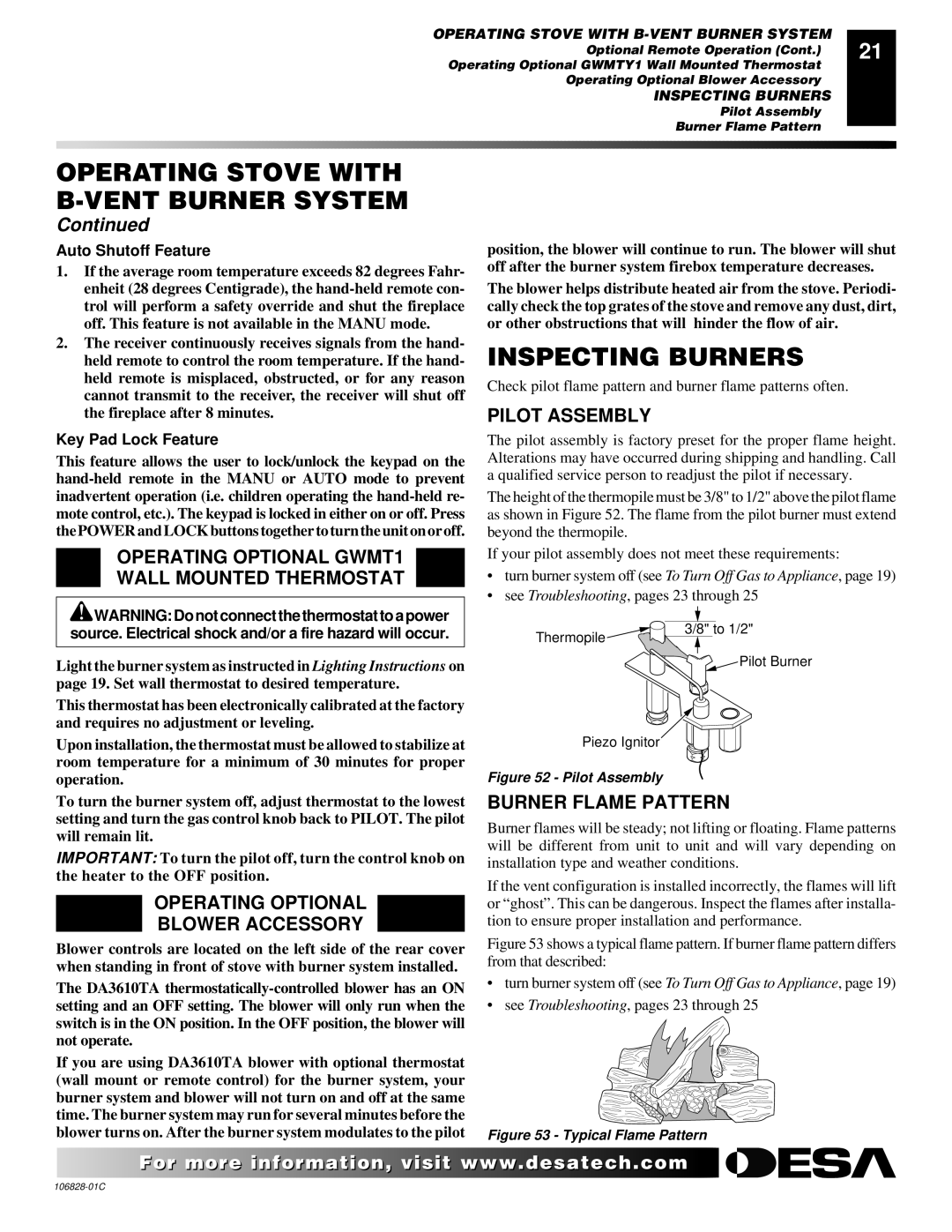SBVBP(C), SBVBN(C) specifications
Desa SBVBP(C) and SBVBN(C) are two advanced models in the landscape of environmental and energy-efficient technologies. These innovative designs are at the forefront of sustainable construction, showcasing a plethora of features and characteristics that make them stand out.One of the main features of Desa SBVBP(C) is its emphasis on bioclimatic architecture, which ensures that buildings harmonize with their surrounding environment. This model incorporates passive solar design principles, allowing natural light to penetrate efficiently while minimizing energy loss. High-performance thermal insulation is another significant characteristic, which helps maintain comfortable indoor temperatures regardless of external weather conditions.
Desa SBVBN(C) complements its counterpart with its remarkable integration of renewable energy technologies. Equipped with photovoltaic panels and wind turbine systems, this model harnesses natural energy sources to reduce reliance on non-renewable energy. The energy generated can be used for lighting, heating, and powering appliances, making the building self-sufficient and cost-effective over time.
Both models utilize smart technology for enhanced operational efficiency. Internet of Things (IoT) devices allow for real-time monitoring and control of energy consumption, promoting sustainable living practices among residents. Automated systems adjust lighting, heating, and cooling based on occupancy and time of day, further contributing to energy savings.
Water conservation is another crucial aspect of Desa SBVBP(C) and SBVBN(C). Both designs implement rainwater harvesting systems and greywater recycling technologies, ensuring that water usage is minimized and reused effectively. This not only lowers utility bills for occupants but also contributes to environmental sustainability by reducing the strain on local water resources.
The construction materials used in both models emphasize sustainability, utilizing recycled, locally sourced, and eco-friendly materials whenever possible. This commitment to green building practices ensures that the overall environmental footprint of the structures is minimal.
In summary, Desa SBVBP(C) and SBVBN(C) represent a paradigm shift towards eco-conscious living. Through the integration of advanced technologies, renewable energy sources, and smart systems, these models provide a blueprint for sustainable development that addresses the pressing challenges of climate change and environmental degradation. As cities around the world seek innovative solutions to improve urban living, models like these shine as beacons of hope and progress.

